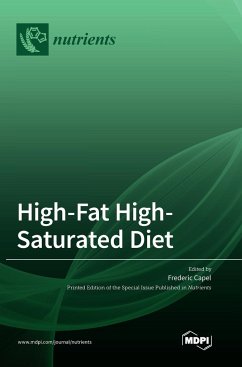Dietary fat quality is a crucial determinant of several physiological, biochemical and molecular processes in the body, tissues and cells. As a source of energy, Fatty Acids (FA) are mainly stored in fat cells and within lipid droplets (LD) in oxidative and steroidogenic tissues, but significant amounts are also found in cell membranes where their structural role is crucial for membrane protein functions and the control of cellular functions. Differential effects have been identified between different types FA on inflammatory and metabolic diseases during obesity or in response to physical exercise and chronic diseases. The most recent dietary guidelines advise that lipids should represent 35% of the daily energy intake in order to prevent deleterious effects of high glycaemic index carbohydrates and deficiency in essential fatty acids. Hence, the prevalence of obesity could rise dramatically despite a fall in total fat intake. Advice is more focused on the improvement of the quality of fat than on the reduction of total fat intake. Dietary fat sources provide a mixture of saturated FA (SFA), monounsaturated FA (MUFA) and polyunsaturated FA (PUFA). Most institutional dietary guidelines claim that the consumption of SFA should be limited to the expense of MUFA and PUFA as a nutritional strategy for the prevention of chronic diseases. The role of dietary SFA and MUFA in cardiometabolic risk remains controversial in the scientific community. This special issue was proposed to publish articles that bring new elements into the topic by collecting recent advances for students and professionals involved in lipid and health.
Hinweis: Dieser Artikel kann nur an eine deutsche Lieferadresse ausgeliefert werden.
Hinweis: Dieser Artikel kann nur an eine deutsche Lieferadresse ausgeliefert werden.








